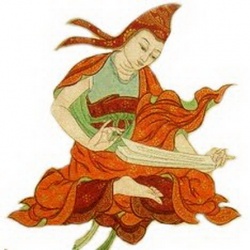Difference between revisions of "The intention collection"
(Created page with " The {{Wiki|Intentions}} Collection belongs to the Karma family. Quite appropriately, the Wind element is also associated with the Karma Family as well. Both int...") |
|||
| (One intermediate revision by the same user not shown) | |||
| Line 1: | Line 1: | ||
| − | + | {{DisplayImages|1490|483|3258}} | |
| − | + | The [[Intentions Collection]] belongs to the [[Karma family]]. Quite appropriately, the [[Wind element]] is also associated with the [[Karma Family]] as well. Both [[intention]] and the [[wind element]] involve {{Wiki|movement}} and [[action]]. Creativity is also involved in this [[energy]]. | |
[[Intention]] involves our collection of goals and values. It includes our collections of motivations and the imprints of all of the choices and rationalizations that we have made. It includes all of our habitual ways of reacting to things. | [[Intention]] involves our collection of goals and values. It includes our collections of motivations and the imprints of all of the choices and rationalizations that we have made. It includes all of our habitual ways of reacting to things. | ||
| Line 47: | Line 47: | ||
{{R}} | {{R}} | ||
[http://www.peacefulgarden.ca/teachings/The5Wisdoms/Karma/04-Intention.html www.peacefulgarden.ca] | [http://www.peacefulgarden.ca/teachings/The5Wisdoms/Karma/04-Intention.html www.peacefulgarden.ca] | ||
| − | [[Category: | + | [[Category:Karma Family]] |
Latest revision as of 07:53, 9 February 2014
The Intentions Collection belongs to the Karma family. Quite appropriately, the Wind element is also associated with the Karma Family as well. Both intention and the wind element involve movement and action. Creativity is also involved in this energy.
Intention involves our collection of goals and values. It includes our collections of motivations and the imprints of all of the choices and rationalizations that we have made. It includes all of our habitual ways of reacting to things.
Intentions can also be long term and short term. We cook food in order to satisfy our hunger, which is a temporary, short term goal. We eat and satisfy our hunger in order to stay alive. The reason that we stay alive would be a longer term goal. The longer term goals from a spiritual point of view would be to live long enough to be able to create a strong and positive spirit. From the Buddhist point of view, we already posess that spirit, which we call our Buddha Nature.
The goal then becomes for us to clear away all of the misguided understandings and habits that block or distort our spirit or the expression of our Buddha Nature. This involves changing and purifying our Karma or habitual tendencies.
When involved in the law of Karma, there are certain things that influence the resulting force of the karmas that we create. There are changes that we can make to redirect and transform our karma.
The first is the object. If we cause obstruction to a spiritual person, it is more harmful than to block the path of a spider for instance. This is because the actions of a spiritual person are beneficial for many other beings and so by obstructing a spiritual person we are harming many other beings as well. We always try to avoid causing obstructions and harm for others, but we need to be especially careful of spiritually developed beings. Since it is difficult to judge the spiritual level of others, we should be careful in how we treat all sentient beings.
The same applies with helping others. If we help a spiritual being then we are supporting their efforts in helping others and eliminating suffering. Therefore we are benefitting more than one being by helping a more spiritual one. In all of our helping of others, we need to ensure that the help that we offer matches the needs, circumstances, and capacities of the beings that we're helping.
When ensuring that our intentions are clear, we can learn to view our relationship with others and our response to external circumstances as an opportunity to reinforce a purer and more complete view and understanding of the world. This means regarding external circumstances as a "field of Merit".
We view the situations that confront us as an opportunity to create and strengthen our virtue. That way all beings and situations become aids to our becoming Buddhas. This is what is meant by viewing our world as a "field of Merit". We then begin to look for opportunities and beings to perform virtues with and perform virtues on. This type of attitude purifies the objects of our karmas and is the beginning of eliminating harmful or negative karmas and expressing our own BuddhaNature while recognizing the BuddhaNature of others.
Next is the motivation behind our actions. This is where the intention collection really comes into play.
From the Buddhist point of view, religious practice and virtue are about eliminating suffering, understanding the true nature of reality, and developing the skill to help others do the same. We need to examine just how important these goals are to us. Then we need to act on these ideas.
Values are about the level of importance that we place on our goals. We need to reflect on just how important eliminating suffering, understanding reality, and helping others really is for us.
Alot of our time and energy is preoccupied on acquiring and enjoying pleasures of the senses and avoiding and resisting painful sensations. In our attempts to obtain happiness and avoid suffering, we have been fooled into looking at the pursuit of temporary sensual pleasures as the solution to this goal.
The real method to obtain peace and joy is to have a realistic view of the world and our role within it. Our intentions become, at this point, merely our expression and communication of the relationship between the world around us and our more complete and realistic viewpoint.
Viewing the world as impermanent instead of permanent means that we develop non-attachment. The more we act out of attachment, the more we are falling for the notion that we our outside world, our lives, and our possesions and accumulations are permanent.
Viewing the world as unable to ultimately satisfy us eliminates our longing and craving. The result is that we become content with our current circumstances and then act based on contentment instead of longing. Recognizing the potential for suffering in worldly pleasures puts a stop to our constant faulty search for satisfaction from external sources.
Viewing our world as interdependent, as opposed to looking at the objects and people around us as independent, we tend to be more patient with people and with circumstances. The result is that we will act out of patience instead of anger or frustration. We will also be careful with the consequences of our actions instead of being indifferent to any results of our actions that don't affect us directly.
Finally, viewing our entire universe as selfless, we recognize our interconnection with everything and everyone. This makes us appreciate the qualities and benefits of those around us. We also recognize because of this that no one and nothing is fixed and unchangeable. That openness, gratitude and concern for others leads us to act out of compassion in everything that we do. Otherwise we react in our own self interest and are indifferent to the sufferings and needs of others.
After the combining of an object and a motivation or intention, the intensity and thoroughness of the action, the completeness of the results, and the degree of our feeling of regret or satisfaction at an action, good or bad, further intensifies the strength of our intentions and the force of our habitual patterns.
If our intentions come from views reflected in solidifying our worldly position or circumstances, or reflecting self-centred motivations, then these harmful intentions will be reinforced. The longing, attachment, fear, anger, doubt, or confusion that arise from these intentions are strengthened within our collection.
If our intentions relate to eliminating suffering, understanding reality, and helping others to do the same, then these virtuous intentions will be reinforced. At the same time, contentment, renunciation, patience, compassion, confidence, and understanding are also reinforced.
The choice is always up to us, but the forces that we have to resist and to work with, in order to avoid or eliminate non-virtue and suffering, come from this group of reinforced negative intentions that we have collected over all of this time.
Similarly, the strength of the forces in our lives towards Peace, Joy, and Awakening and the developing, and strengthening of these virtues, comes from our collection of reinforced positive intentions or impulses.


